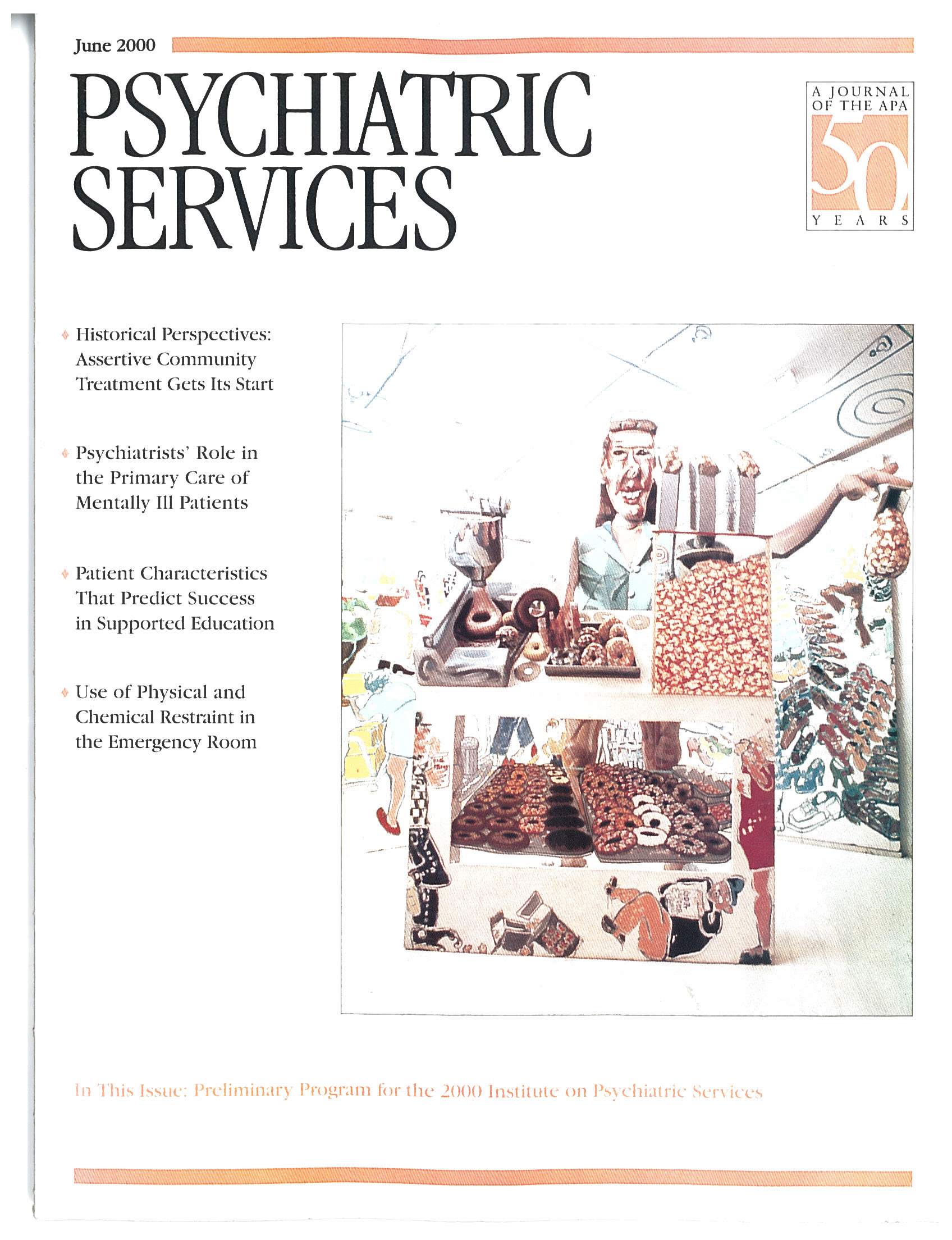Variations in Practice
To the Editor: Congratulations to Kramer and associates (1) for their excellent report on psychiatric practice variations in the March 2000 issue. Further congratulations to the practitioners, patients, and administrators from the six settings that participated in the study. Studies such as this one are published too rarely in journals sponsored by the American Psychiatric Association, partly because we are just learning how to do them and partly, I suspect, because they imply that not all practices are the best.
The article, which was written with the greatest respect for the confidentiality of the clinicians and sites studied, reminds us that our styles for treating depression vary considerably. For example, there was an 84 percent variation in the percentage of patients with major depression who received antidepressant medications, and a 113 percent variation in the mean number of psychotherapy sessions they received. There was no indication that the clinics prescribing less medication were substituting more psychotherapy sessions. And this degree of variability was measured in carved-out, staff model, capitated settings that are presumably dedicated to more homogeneity and efficiency than the average office-based practice.
The authors correctly point out that their investigation was not designed as a research study, and they caution about how generally their findings may apply. Yet they should not be apologetic for conducting systemic inquiry in the way they have. Their article should serve as a model for the field. An important next step in the process would be to determine which practices in this mix are the best practices. For example, do patients treated in such different ways have different outcomes? Do certain clinicians or clinics achieve better outcomes than others? If so, who are the best caregivers, and what can we learn from them?
If only organized psychiatry put as much time, money, and energy into this type of inquiry as it does into its lobbying activities, we would not be on the ropes in the vicious and highly volatile health care climate in which we find ourselves. We should not be defensive about the variability in the way we practice; rather, we should understand the variability and use that knowledge to strengthen our practice styles. As contributing editor for the Best Practices column in this journal, I welcome reports of efforts to define these best practices.
Dr. Glazer is associate clinical professor of psychiatry at Harvard Medical School, Massachusetts General Hospital, in Boston.
1. Kramer TL, Daniels AS, Zieman GL: Psychiatric practice variations in the diagnosis and treatment of major depression. Psychiatric Services 51:336-340, 2000Link, Google Scholar



